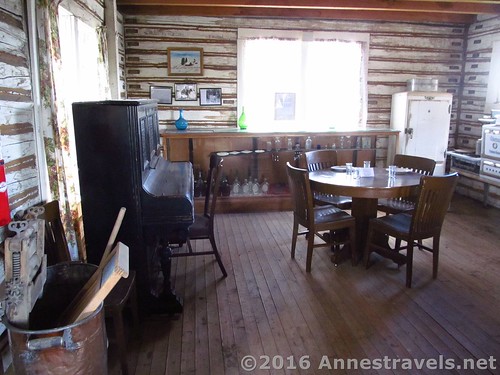
There are some people you just relate to instinctively. Whether it’s because you’ve had similar enough experiences in life, you’re facing similar challenges, or there’s just something similar between the way you both relate to your different experiences in life, you and these other people can forge a friendship in a matter of minutes. Over time, it can deepen and become stronger, but it’s amazing to me how similar experiences can be the bridge that naturally and immediately brings people close to each other.

I see it on the trail all of the time: I’ll say “hello” to a random hiker, and the next thing we know, we’re sharing life stories. It’s crazy. Like, sure, I’m going to tell a random stranger about how I started writing trail guides and the specifics of how I camp in a van. But they’re telling me about their custom mudder jeep and their wife’s favorite kind of candy, so I suppose it’s all good. Most of these friendships don’t go beyond that meeting, or sometimes we’ll follow each other on social media. But that’s the end of it.

The interaction takes on another whole flavor when we find out we both love Jesus. I was talking to a couple on the Great Allegheny Passage last summer. After about five times of almost talking about God – it was just so natural in the conversation – I finally asked if she was a Christian, “because I’m about to quote the Bible.” It turned out that she and her husband were pastors. That common bond of loving Jesus made it impossible for me not to talk about Christ and His words with her.
It’s easy to relate to people who are like us. We have that common experience – Jesus, hiking, van life, homeschooling, growing up in a certain region, a similar-sized family, familiar disabilities within the family, a love of music, etc., etc., etc. There’s no end of topics to talk about and share because we’ve both been there before. I’ve spent hours sitting at kitchen tables talking about miracles I’ve experienced and that the others at the table have experienced – we may have very different experiences in the miracles, but we’ve all encountered the power of God.

What takes quite a lot more maturity is to relate to people who have wildly different experiences than us. This is especially true in Christian circles. I’ve sat around the kitchen tables of people who love Jesus but who have no clue what a miracle in today’s world looks like (beyond salvation). The working of the Holy Spirit is relegated to interpreting the Bible to us, and our faith is set in stone by pre-determined logic based on the scriptures.

At times like this, where my friends’ experience of God is so vastly different than my own, it’s easy to brush away the experience that they have had. It’s easy to think, “Well, they haven’t experienced what I’ve experienced, so obviously, they’re just less mature than me. God will bring them up here to my experience someday.” But the truth is that their experience of God is valid and real, and chances are we both need to grow a bit in our faith to become more like Jesus.

Immaturity says, “You’re not like me, so we can’t be friends. We simply have nothing in common.” Maturity says, “I don’t totally get where you’re coming from, but I want to love you with Christ’s love whether I agree with your experience in Him or not.” Chances are, if they keep growing, they will outgrow the limitations of their current experience. But so will I.

I want to be mature enough to appreciate the experience of God in another person’s life, whether I’ve experienced that part of the Christian life or not. For example, I may not have seen someone raised from the dead, but I want to be able to appreciate someone else’s experience doing it. I may not have been sent out onto the streets to share the gospel with thousands of people, but I want to appreciate and see Christ in the person who has found this as their calling. I may not be in love with learning the nuances of theology, but I want to appreciate the knowledge and Biblically-based knowledge that these people possess.

Somehow, we have to hold dear the experiences God has given us – from our theology to things we have seen and experienced – while allowing ourselves to love and value those who we don’t agree with. I’m not saying it’s comfortable. I’m not saying there won’t be times when it’s downright painful; “But you’re so wrong on that point!!!” and even feel righteous indignation at the lies (or “lies”) that those we disagree with bring up as though everyone believes what they believe. But if we can value them, the people, they can also teach us truth and show us how God relates to certain groups of people. Maybe we haven’t experienced it yet, but through them, God can reveal Himself to us by what they have seen, heard, and experienced themselves.







